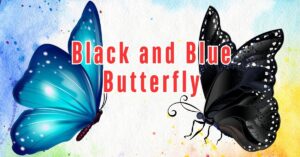Han Kang is one of the most prominent voices in contemporary Korean literature, known for her haunting, thought-provoking, and deeply emotional works. Although her literary career spans decades, she gained international fame with her novel The Vegetarian, which won the Man Booker International Prize in 2016. Han Kang’s works often explore complex themes such as trauma, violence, identity, and the human experience, leaving readers with powerful emotional impacts.
In this blog post, we’ll dive into seven intriguing facts about Han Kang, exploring her life, works, and how she’s reshaping Korean literature on the global stage.
Who is Han Kang? A Brief Biography
Born on November 27, 1970, in Gwangju, South Korea, she came from a literary family—her father, Han Seung-won, is also a novelist. This early exposure to books and writing shaped her path as a writer.
Growing up in Gwangju, Han witnessed the aftermath of the Gwangju Uprising, a pivotal moment in South Korea’s democratic movement, which would later inform some themes in her work. She studied Korean literature at Yonsei University in Seoul, one of the most prestigious universities in South Korea. After graduating, she began her literary career, initially focusing on poetry before transitioning to fiction.
Her stories are often layered with allegory and explore the depths of human psychology, violence, and existential crises. Over the years, the author has become one of the most celebrated figures in South Korea and internationally, earning acclaim for her ability to tackle difficult themes with sensitivity and precision.
Han Kang’s Early Literary Career
Han Kang began her literary journey in the late 1990s, publishing her first collection of poems and short stories. Her debut novel, The Black Deer, was released in 1993, marking her entry into the Korean literary scene. Although her early works garnered attention in Korea, it wasn’t until the release of her third novel, The Vegetarian, that Han Kang truly stepped into the global spotlight.
Her early career was heavily influenced by Korean literature and culture, but she also drew inspiration from Western literary traditions. Her unique ability to blend the two has set her apart from other writers of her generation. Even in her earliest works, readers can detect recurring themes such as the inner struggles of human existence, trauma, and societal alienation.
During this period, Han Kang also published short stories and essays that would eventually help solidify her reputation as a profound thinker and talented writer. Her willingness to address taboo subjects and push the boundaries of traditional storytelling made her a distinctive voice in Korean literature.
The Vegetarian: Han Kang’s Breakthrough Novel
While Han Kang had already made a name for herself in Korea, it was her novel The Vegetarian that introduced her to a global audience. Published in 2007 in Korea and later translated into English by Deborah Smith in 2015, The Vegetarian became an international literary sensation. The novel explores the life of a woman who decides to stop eating meat after experiencing disturbing dreams of violence and bloodshed.
The Vegetarian is divided into three parts, each told from the perspective of a different character, but none from the protagonist herself. This narrative choice heightens the sense of isolation and misunderstanding that the central character, Yeong-hye, faces from her family and society as she descends into mental and physical decline.
The novel is often praised for its exploration of deep philosophical questions, such as the nature of bodily autonomy, the pressure of societal norms, and the devastating effects of trauma. The Vegetarian is a story that mixes realism with surrealism, presenting a chilling yet fascinating look at how personal rebellion can unravel one’s life.
In 2016, Han and her translator Deborah Smith won the Man Booker International Prize for The Vegetarian, marking a significant moment for both the author and Korean literature. This award catapulted her into international stardom and helped elevate the status of translated works, especially from non-Western countries.
Unique Writing Style and Themes
One of the most notable aspects of this writer’s prose is her distinctive style, often described as minimalist yet deeply poetic. She uses sparse, precise language to convey complex emotions and philosophical ideas. The carefully constructed prose allows readers to reflect on the underlying themes of her stories.
1. Themes of Trauma and Violence
A recurring theme in her work is trauma—both personal and collective. Whether it’s the trauma of war, familial conflicts, or the inner turmoil of individuals, the author masterfully delves into the human psyche to explore how trauma shapes and distorts reality. In The Vegetarian, for instance, Yeong-hye’s mental and emotional breakdown is triggered by the trauma of her violent dreams and her inability to fit into societal expectations.
2. Bodily Autonomy
Han often examines the tension between bodily autonomy and societal pressures. Her characters frequently struggle with the control others exert over their bodies, whether through physical violence, cultural norms, or psychological manipulation. This theme is also evident in Human Acts, where characters grapple with the violence inflicted during the Gwangju Uprising.
To enhance your writing, you might also find it helpful to explore how many words H2 headings should be for optimal readability and impact.
3. Alienation and Identity
Alienation is another prominent theme in her writing. Many characters feel disconnected from their families, communities, or even themselves. In The Vegetarian, Yeong-hye’s decision to stop eating meat alienates her from her family, leading to a breakdown in relationships. The author’s work often questions the nature of identity—how it is shaped, constructed, and sometimes destroyed by external forces.
Awards and Recognition: Han Kang’s Global Impact
Over the years, Han Kang has received numerous accolades for her literary achievements. Her work is celebrated not only for its artistic merit but also for its bold exploration of difficult and often controversial topics. Some of her most significant awards include:
1. Man Booker International Prize (2016)
The award that truly solidified Han Kang’s international reputation was the Man Booker International Prize for The Vegetarian. This prestigious award recognizes the best literary works translated into English, and Han Kang became the first Korean author to win it. Her victory was a monumental moment for Korean literature and brought attention to the richness of non-Western literary traditions.
2. Yi Sang Literary Award (1999)
This is one of the most prestigious literary awards in South Korea, and Han Kang won it for her short story “The Fruit of My Woman”. The story, much like her later works, explores themes of transformation and identity, showcasing her early talent in addressing complex emotional landscapes.
3. Malaparte Prize (2017)
In 2017, Han Kang won the Malaparte Prize, an Italian literary award that honors foreign authors whose works have significantly impacted global literature. This recognition further solidified her standing as a literary figure of international importance.
To learn more about the prestigious awards in literature, including the Man Booker International Prize that Han Kang won, check out the Man Booker Prize.
Other Notable Works by Han Kang
While The Vegetarian may be her most famous novel, Han Kang has an impressive body of work that reflects her diverse interests and literary talents. Here are a few of her other notable books:
1. Human Acts (2014)
Human Acts is another of Han Kang’s most celebrated novels. The book is set during and after the Gwangju Uprising of 1980, a pivotal moment in South Korea’s history. Through the interconnected stories of multiple characters, Han Kang explores the brutal repression of the uprising, the trauma it inflicted on survivors, and the lingering impact of political violence. The novel was praised for its emotional depth and historical significance.
2. The White Book (2016)
Unlike her previous novels, The White Book is a meditative reflection on grief, loss, and memory. The book is structured as a series of poetic fragments, each focusing on an object or a moment associated with the color white. This work is deeply personal, as Han Kang wrote it in part as a way of mourning the loss of her older sister, who died shortly after birth. The White Book showcases Han Kang’s ability to create profound emotional resonance through minimalist prose.
3. The Black Deer (1993)
The Black Deer was Han Kang’s debut novel, marking the beginning of her literary journey. Although it didn’t receive the same level of international recognition as her later works, it established her as a writer to watch in the South Korean literary scene.
FAQs About Han Kang
- What is Han Kang best known for?
- Han Kang is best known for her novel The Vegetarian, which won the Man Booker International Prize in 2016. The novel’s exploration of bodily autonomy, trauma, and societal pressures has resonated with readers worldwide.
- What are Han Kang’s main literary themes?
- Some of Han Kang’s main themes include trauma, violence, bodily autonomy, alienation, and identity. Her works often reflect on the human condition and the ways in which people navigate difficult emotional and physical landscapes.
- What other notable works has Han Kang written?
- In addition to The Vegetarian, some of Han Kang’s other notable works include Human Acts, The White Book, and The Black Deer.
- What inspired Han Kang to write The Vegetarian?
- Han Kang has stated that The Vegetarian was partly inspired by her own experience with vegetarianism and her interest in exploring themes of bodily autonomy, societal norms, and personal rebellion.
- Has Han Kang won any awards?
- Yes, Han Kang has won several prestigious awards, including the Man Booker International Prize, the Yi Sang Literary Award, and the Malaparte Prize.
- What makes Han Kang’s writing style unique?
- Han Kang’s writing style is often described as minimalist, poetic, and haunting. She uses precise language to explore deep emotional and philosophical themes, allowing readers to engage with the underlying meanings of her work.
- Is Han Kang’s work available in translation?
- Yes, many of Han Kang’s works, including The Vegetarian, Human Acts, and The White Book, have been translated into several languages, making them accessible to a global audience.
- What impact has Han Kang had on Korean literature?
- Han Kang has played a significant role in bringing Korean literature to the global stage. Her international success has helped shine a spotlight on South Korean authors and the country’s rich literary tradition.
- What future projects is Han Kang working on?
- While Han Kang keeps her personal life and upcoming projects relatively private, fans eagerly await her next literary venture, hoping for more thought-provoking and emotionally resonant works.
- How can I get started with Han Kang’s works?
- If you’re new to Han Kang’s writing, start with The Vegetarian or Human Acts to experience her unique style and thematic depth.
Conclusion
Addison’s disease is a rare but serious condition that requires ongoing awareness and management. While the impact of adrenal insufficiency can be profound, early diagnosis and effective treatment strategies can help individuals lead fulfilling lives. By understanding the symptoms, causes, and potential complications of Addison’s disease, patients and their families can be better prepared to navigate the challenges this condition presents. Regular monitoring, a well-balanced diet, and a proactive approach to health can significantly improve quality of life for those affected. Whether managing the condition in humans or caring for pets diagnosed with Addison’s disease, knowledge and support are essential for thriving despite the challenges. With the right treatment and lifestyle adjustments, individuals with Addison’s disease can maintain their health and well-being, allowing them to engage fully in everyday life.
Emma Rose is a professional writer with over 3 years of experience covering a wide range of topics, including health, lifestyle, and technology. She is known for her in-depth research and commitment to providing accurate, trustworthy, and engaging content. Emma’s work focuses on delivering value to readers by simplifying complex topics and ensuring every article meets high editorial standards.




